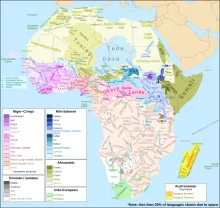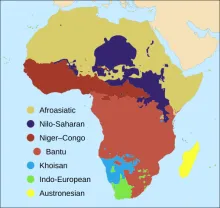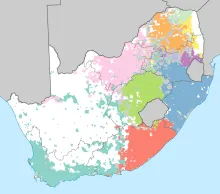Imagine you have a website that's only in English. That's great, but only a certain number of people in South Africa speak English as their first language. According to the information available, roughly around 5.2 million South Africans speak English as their first language.
- English as a Home Language:
- Around 5.2 million people in South Africa speak English as their first language. This means it's the language they grew up speaking at home.
- English as a Language of Use:
- English is very important in South Africa, even for people who don't speak it at home. It's widely used in:
- Business
- Government
- Education
- Media
- According to information found, nearly 31 million South Africans are proficient in English speaking and comprehension. So that means that a lot more people than just the home language speakers, can understand and use English.
- English is very important in South Africa, even for people who don't speak it at home. It's widely used in:
- Generational Differences:
- Interestingly, younger generations tend to have higher English proficiency. For example, a much higher percentage of Generation Z can speak and understand English, than older generations.
- Cities: You'll generally find higher levels of English proficiency in South African cities. This is because:
- Cities are often centers for business, education, and government, where English is frequently used.
- People from different backgrounds come together in cities, and English can act as a common language.
- Schools and universities in cities often use English as the main language of instruction.
- Rural Areas: While English is spoken and understood in many rural areas, proficiency might vary.
- Indigenous languages often play a stronger role in everyday life in rural communities.
- Access to English-language education and resources may be more limited in some rural areas.
So, while not everyone speaks English as their first language, a large portion of South Africans can use English effectively. What happens to the 50% of South Africans that don't have effective English language skills? Sure you can ignore them if you're a small stand in a market, but what about the government that needs to deliver services to everyone.
By adding all 11 official languages of South Africa to your website you reach:
- English: About 9.6% of South Africans speak English at home.
- isiZulu: This is the most spoken home language, with about 22.7% of people using it.
- isiXhosa: Around 16% of people speak this language at home.
- Afrikaans: About 13.5% of people speak Afrikaans.
- Sepedi: Approximately 9.1% of people speak Sepedi.
- Setswana: Around 8% of people speak Setswana.
- Sesotho: About 7.6% of people speak Sesotho.
- Xitsonga: Around 4.5% of people speak Xitsonga.
- siSwati: About 2.5% of people speak siSwati.
- Tshivenda: Around 2.4% of people speak Tshivenda.
- isiNdebele: About 2.1% of people speak isiNdebele.
If you add all these languages to your website, you're potentially reaching almost everyone in South Africa! That's a huge jump from just reaching the English speakers.
Why These Numbers Matter:
- It's like going from having a small lemonade stand to having a giant supermarket! You'll have so many more customers!
- It means your website can help more people and share important information with everyone.
- It means more people will feel welcome when they visit your website.
So, by making your website multilingual, you're making it much more inclusive and reaching a much larger audience.


